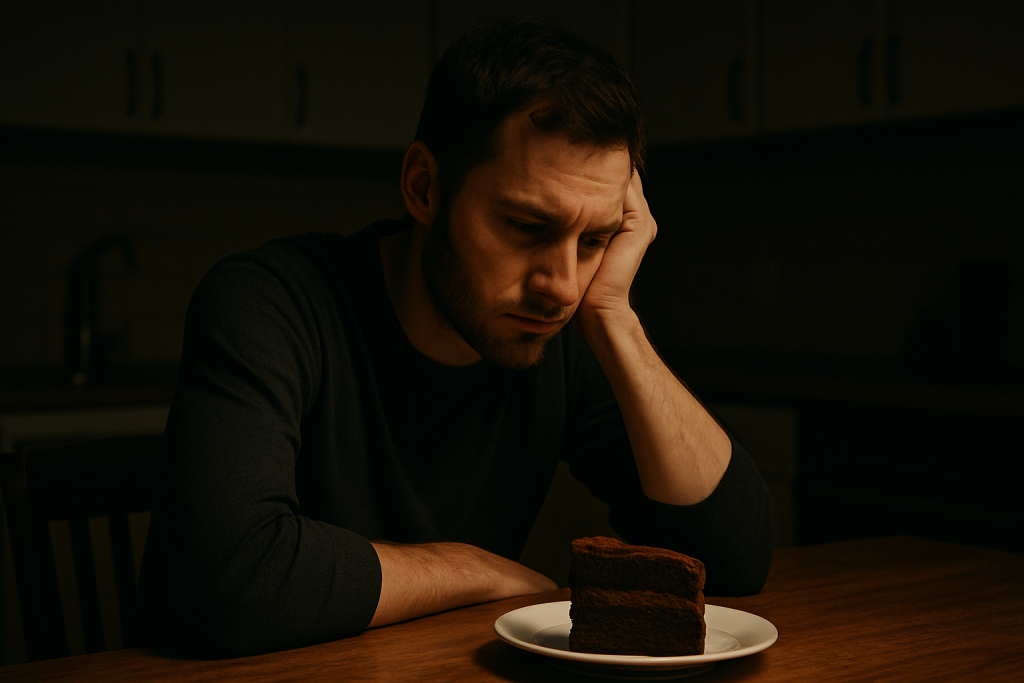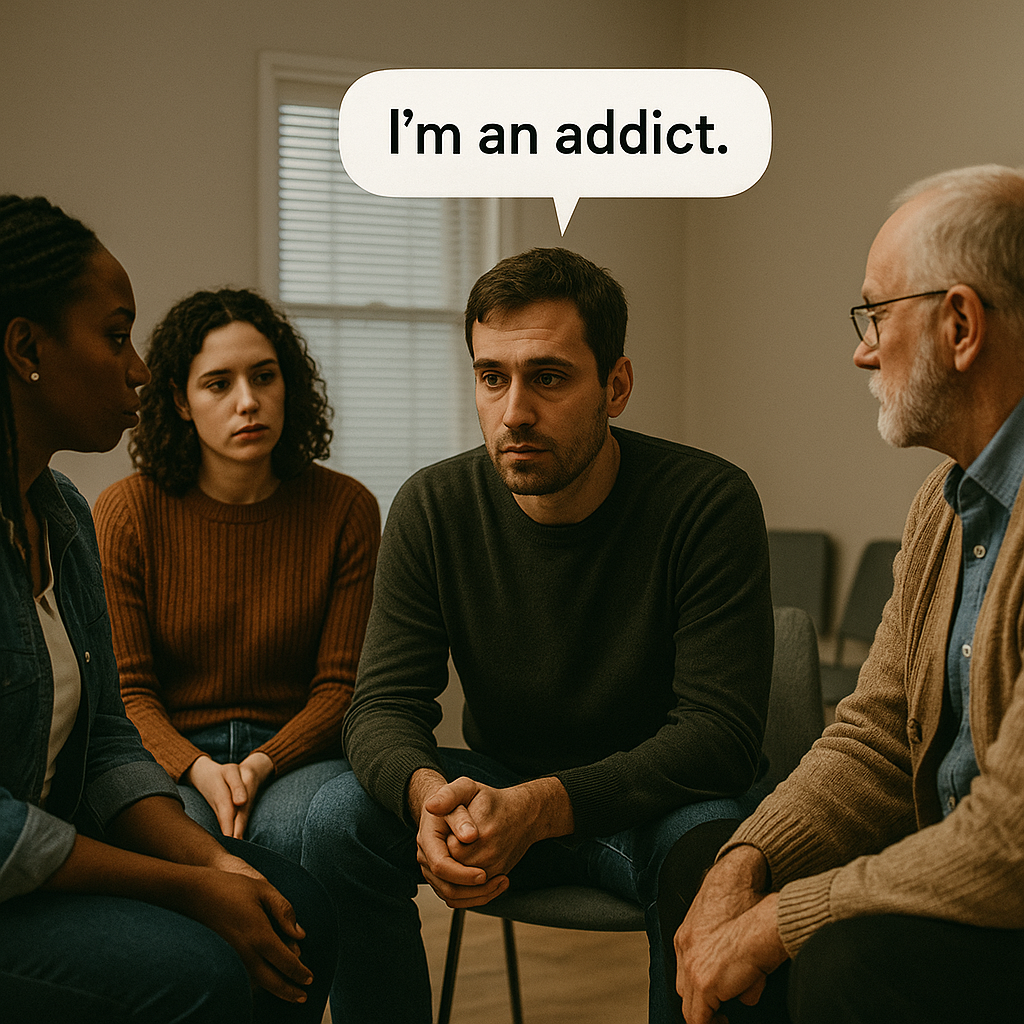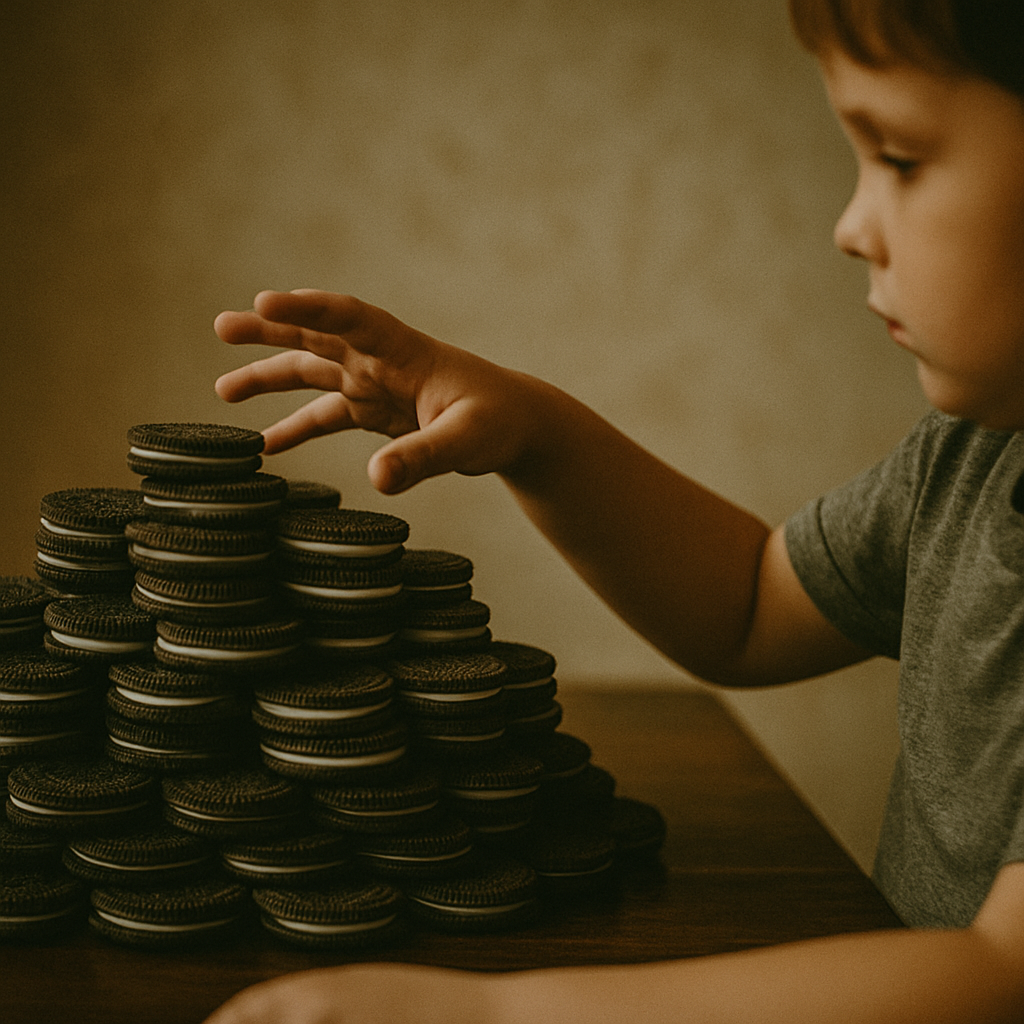
At some point, someone probably told you that the goal is to “heal” your relationship with food.
That if you just followed the right diet, read the right books, or saw the right therapist, you could finally eat “intuitively,” “mindfully,” and without guilt.
But here’s the uncomfortable truth:
Some people will never have a good relationship with food.
They will always be food addicts.
They will always struggle with disordered eating patterns.
That might sound harsh—even insane—to some.
But hear me out.
When it comes to alcohol or drugs, we don’t tell addicts,
“Just develop a better relationship with heroin.”
If you go to an AA/NA meeting, you will still hear people who have been sober for DECADES say “My name is ________ and I’m an Addict.”
They don’t say it with judgement or shame. It is just a fact.
That is who they are.

We recognize that abstinence is the only viable path for most.
We understand that for some people, there is no “healthy moderation.”
Only discipline, avoidance, and boundaries.
Sure, some people hear that as a positive claim. “I am an addict.” But that gives them something very powerful.
An absolute.
What wiggle room is there when you acknowledge what is?
Put even more simply.
My vision is not great.
No amount of denying that or living with no glasses is going to change that.
Of course, food carries a unique complication.
You can’t abstain entirely from food.
You will die.
It is one of the FEW vices you MUST learn moderation with
So what do you abstain from?
You abstain from the specific foods that hijack your psychology and physiology—the ones that trigger the addiction spiral.
The ones that YOU know are “bad” for YOU.
This is where most people, usually other coaches, really push back on me.
For some people, the only way to survive is to moralize food.
To label certain foods as “good” and “bad,” not because it’s trendy, but because it’s survival.
Because once you’re an addict, the relationship isn’t repaired through balance and forgiveness.
It’s repaired through clear lines.
Through uncompromising separation.
“But that’s unhealthy!”
Is it?
I’ve spent over 14 years—and tens of thousands of dollars—chasing the idea that I could heal my gut, fix my eczema, and restore a “normal” relationship with food.
Gut protocols, elimination diets, liver cleanses, talk therapy, intuitive eating, functional medicine—you name it, I tried it.
And what has it really given me?
- Temporary relief.
- False hope.
- Mild improvements (which I am grateful for) that usually revert under stress, a small deviation on vacation, or even nothing at all.
Let’s be clear:
My relationship with food isn’t “bad” in the way most people mean.
I don’t eat because I’m sad.
I don’t binge because I hate myself.
The problem is biological:
Certain foods cause my body to flare up violently—and no amount of optimism, therapy, or gut healing has changed that.
The relationship with those foods is not something I can repair.
It’s permanently broken. (I’m open to the possibility I will be wrong in the long term, but I generally just eat as though I never will)
And even beyond the eczema, I know myself:
Despite usually being just 4–6 strict weeks away from a six-pack,
I never, ever keep serious sweets or junk food in my house.
For one VERY specific reason.
I have zero self-control once it’s there.
None.
If it’s in my house, it’s in my mouth. (Which kinda rhymes, btw)
Period.
I used to eat three trays of Oreos a week as a kid—
4,800 extra calories weekly, over 71 pounds of fat a year if left unchecked. (it was also about $500 a year, at the time)
And no matter how disciplined or fit I look on the outside,
that same kid with the unquenchable sweet tooth is still alive inside me.
I don’t “cure” that part of me.
I contain it.
I build my life around its reality,
not around the fantasy that someday it will disappear.

And once you realize that—not just intellectually, but deeply—
it changes how you approach everything.
The truth is:
Some relationships cannot be improved.
Only changed.
For some people, the relationship with food isn’t something to fix.
It’s something to end—with specific foods, behaviors, environments, and expectations.
Just like you would walk away from an abusive relationship, (and not consider yourself a failure)
a toxic job, (and also not consider yourself a failure)
or a self-destructive addiction— (and STILL not consider yourself a failure)
you walk away from the fantasy that you can ever have a “normal” relationship with certain foods.
And it will not be because you are a failure.
You can see what is,
you can understand yourself,
and you can work within that framework to give yourself the best odds to live a happy and healthy life.
But most importantly, you can frame it as a VICTORY.
Because recognizing that limitation is not weakness.
It’s strength.
It’s clarity.
It’s choosing reality over endless self-blame and false hope.
Healing doesn’t always look like a fairy tale ending.
Sometimes, healing means finally admitting that some battles are permanent—
and choosing to fight smarter, not harder.
